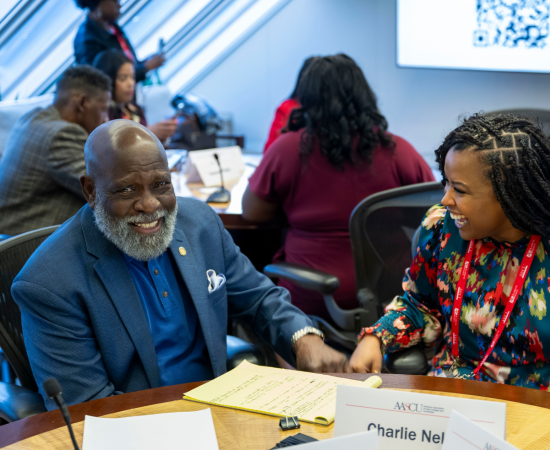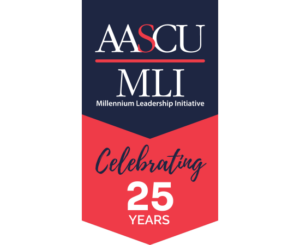Leadership Matters: Answering the Call
A reflection by Charlie Nelms, Co-Founder & President in Residence, Millennium Leadership Initiative

 When 10 Black college and university presidents and chancellors founded the Millennium Leadership Initiative (MLI) in 1999, we did so because we believed in excellence and equity in the academy. We had grown tired of hearing this refrain from trustees and presidents: “we can’t find any qualified minority candidates for senior leadership positions.” We wanted to ensure that the profile of higher education’s “C-suite,” as the executive leadership corps has been dubbed, better reflected the evolving diversity of students seeking a college degree. While our initial intent was to focus exclusively on increasing the pool of Black higher education executives, we quickly pivoted to serving all equity-minded aspiring leaders, regardless of race, ethnicity, gender, or geography. That decision has had an appreciable impact on the makeup of the C-suite.
When 10 Black college and university presidents and chancellors founded the Millennium Leadership Initiative (MLI) in 1999, we did so because we believed in excellence and equity in the academy. We had grown tired of hearing this refrain from trustees and presidents: “we can’t find any qualified minority candidates for senior leadership positions.” We wanted to ensure that the profile of higher education’s “C-suite,” as the executive leadership corps has been dubbed, better reflected the evolving diversity of students seeking a college degree. While our initial intent was to focus exclusively on increasing the pool of Black higher education executives, we quickly pivoted to serving all equity-minded aspiring leaders, regardless of race, ethnicity, gender, or geography. That decision has had an appreciable impact on the makeup of the C-suite.
I remember the palpable excitement at our 1998 summer meeting of the American Association of State Colleges and Universities (AASCU), where we made the decision to establish MLI. We’d talked enough; it was time to walk the walk! For a quarter of a century, MLI has enjoyed the support of numerous presidents and chancellors from an array of institutions. Rather than relying on the largesse of a private donor or a foundation for the funds needed to jump-start the program, each of the founders contributed $5,000. We invited AASCU member presidents to contribute and to nominate candidates for the program. The first cohort of proteges, as they were called at that time, consisted of 19 enthusiastic college administrators who aspired to be college presidents or members of the executive leadership corps.
As MLI founders, funders, alumni, and members of the AASCU community of institutions pause to commemorate the silver anniversary of the program, we can all take pride in the fact that the program is accomplishing its mission. The numbers speak volumes: nearly 800 aspiring C-suite administrators have participated in the program, with one in five becoming college presidents or chancellors. Equally important, in any given year, 75 to 100 AASCU member presidents support MLI through a combination of financial contributions, candidate nominations, and the mentoring of program participants. Without the creativity, commitment, and indefatigable energy of those who have served as executive directors of MLI, the program would not have achieved these results.
Although only four of MLI’s founders are still alive, the legacy of each founder continues to burn brightly. My heart is filled with joy and gratitude as I remember them all. Of course, without the support of the current AASCU president and his predecessors, along with the passion and persistence of that original group of founders and supporters, many would still be complaining vociferously about the paucity of ethnic and gender diversity in the C-suite and the need for a pipeline to close the gap. MLI stepped up and answered the call, and I count it among my greatest accomplishments to be counted among the founders of the program.
As we contemplate the future of higher education during a period of tumult, confusion, and uncertainty, I encourage all college and university leaders to keep the faith. We must never forget that leadership is a process—not a position!
Endorse a candidate for the 2025-2026 MLI cohort.
Applications and endorsements are due on Feb. 10, 2025.